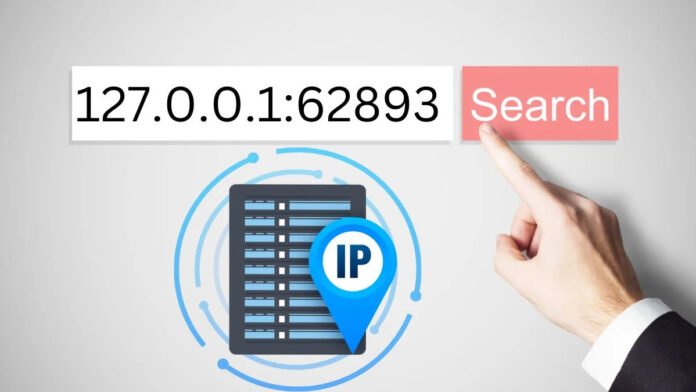What is Localhost?
Developers utilize localhost—shown by IP address 127.0.0.1:62893—a loopback network interface on their local PCs. This tests websites and initiatives. Crucially crucial in software development, debugging, and testing, this technique lets a computer interact with itself.
Background and Evolution of Localhost Connections
Early days of networking were the first occasion you came across localhost. Originally, it was supposed to be a venue where network applications could be evaluated without really connecting to a network. Localhost connections have expanded over time and are now a major component of contemporary development environments since they give testers and developers a safe and consistent area to work on their products.
Motives 107.0.0.1 Recognising the IP Address
The IP address 127.0.0.1 is the IPv4-defined loopback address. Save for loopback purposes; 127.0.0.1:62893 is the most often used address in the 127.0.0.0/8 subnet. This address lets devices send packets to themselves, therefore verifying that network software operates as it should before being used in a live environment.
Use of Localhost in Software Development
A Safe Testing Platform Local Host for Developers
Under control under a regulated atmosphere. Localhost provides developers with a safe and separate space to test recently created features of their applications.
Testing Risk-free: Testing with 127.0.0.1:62893 lets developers accomplish this without impacting active systems or data integrity. Simulating Real-World Events Changing parameters to find any problems and errors early in the development process allows engineers to replicate actual use scenarios on localhost.
Early Solving of Problems: Localhost allows developers to find and fix possible problems before the software is running, so guaranteeing a better outcome.
Enhanced Growth Cycle: Through iterating and refining programs on localhost speeds up the development cycle, stimulates creativity, and increases general project effectiveness.
In web development, localhost creating and testing websites
Localhost is usually used by web developers for locally building and testing websites. This configuration lets them see changes in real time and debug problems before live server implementation. By leveraging localhost, tools ranging from XAMPP to WAMP and MAMP construct local web servers, therefore enabling management and web application development.
Database Management with Localhost
Localhost connections define database administration both now and in the future. Developers can build up and interact with databases on their local PCs via 127.0.0.1:62893, therefore enabling perfect application integration and data consistency before entering production settings.

Local Host and Network Security
Keeping Privacy: Localhost as a Tool for Security Boost
Since all interactions happen on the local PC, Localhost provides a safe space for development and testing. Maintaining privacy and reducing security concerns helps to separate outside organizations from the development environment.
Localhost in the Cyberspace: Stopping Outside Attacks
Localhost connections point up flaws in a controlled setting and assess cybersecurity policies. Security specialists can evaluate their defenses by modeling attacks on 127.0.0.1:62893, therefore improving their systems to resist actual threats.
Typical Systems Designed Using Localhost Connections
Among the steps developers should take to maintain security even on local hosts are using strong passwords, usually updating programs, and tracking network activity. These activities provide a safe growth process and help to protect the surroundings from possible threats.
- Localhost Linkages Debugging and optimizing local host concerns—common connection issues
- Localhost is not susceptible to problems that could disrupt operations even if it provides a continuous testing ground for programs.
- Typical issues compromising connectivity and functioning include misconfiguration settings, firewall limits limiting local host access, and port conflicts.
- Conflicts arising from several programs fighting for the same port can cause local host services to fail or behave out of turn.
- Firewall limits could inadvertently block localhost connections, thereby forbidding necessary communication between apps and services.
- Inappropriate configurations in network settings or application setup could lead to localhost connectivity issues, therefore affecting testing and development activities.
- Knowledge of local host challenges and the application of diagnostic instruments will enable developers to get beyond these challenges.
- Using tools designed to diagnose setup problems and troubleshoot network connections, developers can rapidly find and correct flaws.
- Quickly addressing local host issues guarantees ongoing testing and development cycles by helping to maintain standards of production and quality.
- Proactive management and resolution of localhost problems help to increase general development efficiency, hence facilitating faster application deployment and iteration.
- continuing Improvement: Learning from and fixing common localhost issues helps to create a stronger testing environment, so supporting ongoing improvement of software development techniques.
Greatest Methods for Flawless Local Hosting
Using dedicated ports, periodically cleaning cache and logs, and keeping system updates can help developers maximize local host performance following best practices. These methods ensure that the surroundings remain sensitive and efficient, so allowing a perfect growing experience.
Techniques and Tools for Optimizing Localhost Performance
- Docker and other virtualizing technologies enable developers to create isolated environments for local host development and testing. By lowering dependencies and conflicts this approach increases the stability and efficiency of the testing processes.
- Containerising is promoted by Docker and other tools helping to standardise packaging apps and their dependencies into consistent components. This assures consistency between development and production environments and helps deployment, hence optimizing workflow on localhost.
- Using performance monitoring instruments, developers can quickly review local host configurations. These technologies help to enable proactive optimization by tracking resource utilization, identifying congestion, and providing analysis of application performance.
- TCPView, Wireshark, and netstat let localhost networks be used for diagnostics of associated problems. By providing comprehensive information on network connections, port use, and traffic patterns, they assist to maximise connectivity and troubleshoot.
- Automaton scripts: On a local host, automating repetitive tasks helps to simplify tiresome work. Scripts ensure consistency across development environments and help to reduce hand labor by automating setup, configuration, and deployment tasks.
- Load testing tools under stress by modeling high traffic on a local host, so evaluating application performance. Before a release, load testing enables developers to identify performance constraints, optimal resource allocation, and scalability improvement.
- Blackfire and Xdebug profiles let developers look at localhost code execution. These technologies guide attempts at optimization to increase responsiveness and efficiency since they detect performance limits in application code.
- Git paired with localhost environments helps to provide code management and teamwork by employing version control solutions. Version control assures code consistency, tracks changes, and offers rollback capabilities, therefore supporting a streamlined development process.
- By applying security tools and best practices on localhost, one helps to avoid vulnerabilities and protects sensitive information. Local systems are protected by SSL certificates, firewalls, and encryption techniques to ensure security standard compliance.
- Continuous Integration (CI) Pipelines: CI pipelines set localhost testing and deployment strategies on their own automatically. CI tools like Jenkins or Travis CI validate code changes, run automated tests, and apply updates to localhost environments, therefore promoting dependability and agility in development cycles.
Case Studies: Practical Use and Future Developments Localhost in Function
- Localhost connections are quite important for many different industries. Using 127.0.0.1:62893, e-commerce companies, for example, test payment gateways and user interfaces. In the healthcare industry, localhost is used to develop and test medical applications guaranteeing legislation compliance and functional performance.
Localhost’s Future in a Technological Scene Changing
As technology advances, local-host connections will become rather crucial. Among newly developing technologies, edge computing and the Internet of Things (IoT) depend on safe and efficient local testing settings. If one can adapt to these changes, localhost will always be the pillar of innovation.
Modern Technologies and Their Impact on Localhost Implementation
Technologies including artificial intelligence (AI) and machine learning (ML) are transforming development. Localhost environments help developers train and test artificial intelligence models close by and provide a secure and rapid forum for innovation. Localhost connections will simply become more crucial as these technologies advance.
In summary: Why Every Developer Should Become Expert Localhost Connections: Underrated Modern Technology Hero
Every developer has to be skilled with local-host connections. Local environment testing and application debugging ensure better quality goods and a more smooth development process. By use of 127.0.0.1:62893, developers will be able to advance their capacity and forward technologies.
Lasting Effects of Localhost on Technology and Creativity
Local hosts have greatly helped technology to progress. From its origins as a simple testing site to its current importance as a fundamental development tool, localhost has enabled many breakthroughs. Looking ahead, local-host ties will become ever more important and contribute to defining the next generation of technical innovations.
In essence,127.0.0.1:62893 is a pillar of modern civilization not just a loopback address but also a basic component of current development approaches. Knowing its worth and using it wisely will help developers to create new prospects and forward technology.




